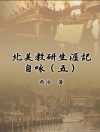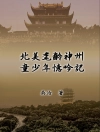Thomas Berry (1914–2009) was one of the twentieth century’s most prescient and profound thinkers. As a cultural historian, he sought a broader perspective on humanity’s relationship to the earth in order to respond to the ecological and social challenges of our times. This first biography of Berry illuminates his remarkable vision and its continuing relevance for achieving transformative social change and environmental renewal.
Berry began his studies in Western history and religions and then expanded to include Asian and indigenous religions, which he taught at Fordham University, Barnard College, and Columbia University. Drawing on his explorations of history, he came to see the evolutionary process as a story that could help restore the continuity of humans with the natural world. Berry urged humans to recognize their place on a planet with complex ecosystems in a vast, evolving universe. He sought to replace the modern alienation from nature with a sense of intimacy and responsibility. Berry called for new forms of ecological education, law, and spirituality, as well as the creation of resilient agricultural systems, bioregions, and ecocities. At a time of growing environmental crisis, this biography shows the ongoing significance of Berry’s conception of human interdependence with the earth as part of the unfolding journey of the universe.
İçerik tablosu
Acknowledgments
Introduction: Thomas Berry and the Arc of History
1. An Independent Youth
2. The Call to Contemplation
3. Studying History and Living History
4. The Struggle to Teach
5. From Human History to Earth History
6. From New Story to Universe Story
7. Evoking the Great Work
8. Coming Home
Interlude: The Arc of a Life
9. Narratives of Time
10. Teilhard and the Zest for Life
11. Confucian Integration of Cosmos, Earth, and Humans
12. Indigenous Traditions of the Giving Earth
Epilogue
Appendix: Thomas Berry Timeline, 1914–2009
Notes
Bibliography
Index
Yazar hakkında
Mary Evelyn Tucker and John Grim teach at the Yale School of the Environment and the Yale Divinity School, where they direct the Yale Forum on Religion and Ecology. They worked closely with Thomas Berry for over thirty years as his students, editors, and literary executors and are the managing trustees of the Thomas Berry Foundation. They are executive producers of the Emmy Award–winning film Journey of the Universe, which was inspired by Berry. In 2019, the International Society for the Study of Religion, Nature, and Culture selected them as recipients of the Lifetime Achievement Award. Andrew Angyal is professor emeritus of English and environmental studies at Elon University. He is also the author of Loren Eisley (1983), Lewis Thomas (1989), and Wendell Berry (1995).












